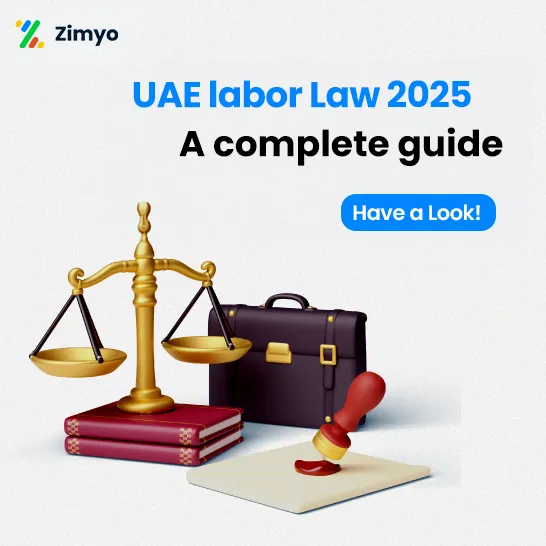Notice period in Thailand is an obligatory measure for protecting both employers and employees during termination. Moreover, whenever you are resigning, retrenching employees or going through restructuring, you are bound to act within the confines of the Thai labour law.
This practice guide provides detailed practical advice on the topic, including timelines, legal references, best work practices, and clever automation tips, to help you build compliance in 2025.

Legal Foundation (Section 17)
- According to Section 17 of the Labour Protection Act, an employment contract without a definite end date requires either party to provide written communication before payday or during payday which ends the employment at the next payday.
- Firstly, the notice cannot be more than 3 months, however with both parties’ consent, they can make the notice period longer in the contract.
- This rule also applies to a resignation or termination issued during probation (which is treated as indefinite).
- Also, employers can decide on pay in lieu of notice, which is settled monetarily as opposed to ensuring that employers require workers to serve the notice period.
- Lastly, employers do not have to pay out during bank holidays, the law binds employers to respect any protection on the same working day hence the subsequent working day becomes the working date.
Standard Notice Period
- A default of 30 days notice period is mostly practiced by the majority of companies who are on monthly pay cycles.
- In addition, when it is bi-monthly or weekly, then the notice can vary from 15 to 16 days which connects to the following payroll date.
- Also when sending the notice, use the actual payday to remove confusion.
- Thus, not matching payday may result in arguments or unjustified requests by employees resigning from their jobs.
Payment in Lieu of Notice
- Employers can provide immediate separation by paying the equivalent salary throughout the notice period.
- The formula for calculation is daily wage X the number of remaining notice days.
- Employers should also make this payment on the termination day. Accurate payout records help employers resolve disputes and provide admissible proof in court.
Immediate Dismissal for Misconduct (Section 119)
Under Section 119, employers can terminate instantly and without severance if the employee engages in gross misconduct such as:
- Dishonesty, violence, critical breach of policy, or criminal conviction
- Repeated infractions or wilful delay in work
- False records or illegal trade
- Abandonment of duty without reason for three days
Employers must record all evidence and prepare a written termination letter, referring to Section 119, and be able to prove the decision with substantial evidence. However, to be fair and avert wrongful dismissal claims, strict scrutiny is used in courts.
Redundancy & Automation (Section 121)
When positions are obsolete due to technology or restructuring, employers must:
- Provide 60‑day written notice to both employees and the Labour Inspector.
- Pay special severance of 60 days’ wages if the notice is shorter.
- Employees with 6+ years’ service receive an extra 15 days’ severance per year, capped at 360 days.
- Employers should keep detailed documentation of the redundancy rationale, notice letters, and inspector communications.
Fixed-Term Contracts
- When the fixed-term contracts reach expiry, they automatically end without notice if the contract allows for this.
- But the contract turns indefinite in the event that it is extended beyond the expiry date, which is a standard notice period.
- The end date and whether it has renewal terms or not are to be made clear by the employers in writing so as not to create misinterpretation.
Statutory Severance Pay
Also, Thai law mandates severance pay under Section 118 separate from notice requirements:
Tenure | Severance Pay (days’ wages) |
120 days – < 1 year | 30 days |
1 – < 3 year | 90 days |
3 – < 6 years | 180 days |
6 – < 10 years | 240 days |
10 – < 20 years | 300 days |
≥ 20 years | 400 days |
- Along with that, employers should pay severance on or before the last working day, along with unused leave and pro‑rated leave benefits.
- Note: Severance is not offset by notice pay or wages already earned.
Penalties & Interest for Delayed Payments
- Wages, severance, or notice period pay must be made within 3 days of termination.
- Arrears attract a 15 percent annual default interest and 15 percent weekly penalty upon overdue past the 7-day limit.
- Authorities may impose a fine if the employer fails to comply of up to THB 100,000, not to mention 6 months stay in prison.
- Making complete documentation and making prompt payments curb financial and legal risk.

Relocation of Workplace (Section 120)
- Employers must give 30 days’ notice before a workplace move.
- Employees can refuse relocation and claim special severance equal to their statutory severance if the move is impractical.
- Written documentation of the relocation plan and employee objections is vital.
Recommended Termination Workflow
- Review contract details, probation stage, and pay-cycle structure.
- Draft termination letter, mentioning the notice period length, last working day, and reasoning.
- Deliver notice in writing—preferably signed or via mail for audit trials.
- Calculate and pay in-lieu wages, severance, unused leave, relocation compensation (if applicable).
- Reclaim assets, revoke IT access, and schedule exit formalities.
- Issue employment certificate and process final settlement within 3 days.
- Archive documentation for 5 years for potential inspections or audits.
Employee Responsibilities – Checklist for a Smooth Exit
- Submit resignation in writing (letter or email) with receipt acknowledgement.
- Keep copies of all documents and settlement breaks.
- Confirm that notice, severance, and leave pay match the formulas.
- Obtain your employment certificate, mandated by law.
- Escalate delays or discrepancies to the Department of Labour.
Zimyo’s Smart Automation for Notice Compliance
It helps streamline every part of the notice‑period process:
- Automated alerts at 30, 15, and 7 days ahead of the final working day.
- Payment-in-lieu calculators, fully integrated with payroll.
- Severance tools that auto-compute based on tenure and contract type.
- Timestamped digital notice letters, accessible via employee and manager on self‑service portals.
- Complete audit trail of all communications, approvals and payments.
- Offboarding checklists for assets, IT access, and final settlements.
- Analytics dashboards to monitor upcoming terminations, costs, and compliance gaps.
Conclusion
The notice period in Thailand is far from a formality. Thailand’s notice period is a legal obligation demanding precision, documentation, and timely payments. Employers and employees can protect their interests by following structured workflows that include pay-in-lieu calculations, severance handling, and audit trails.
Additionally, the integration of innovations such as Zimyo Core HR will automate your HR operations and make them error-free, keeping all processes compliant, accountable, and bringing your peace of mind in any context of termination.
Prepare your organization and employees by getting ready to automate and implement termination procedures properly. This will ensure your organization and employees are not at risk.
FAQ's (Frequently Asked Questions)
How long should the standard notice period in Thailand?
Thai labour law provides that 30 days’ notice is the norm in Thailand. This is between the employers and employees unless a longer period is incorporated into the employment contract.
Is notice period needed in Thailand during probation?
Yes. When an employee is being put under a probation period, 30-day notice would usually be given by either of the parties unless it is otherwise written in the employment agreement. This makes it to be fair and within the law.
Is termination without notice allowed in Thailand?
The employer can dismiss the employee without giving a notice only in special cases which should be gross misconduct or criminal behaviour as written in Section 119 of Thai Labour Protection Act.
What is payment instead of notice throughout Thailand?
Failure to do so (to serve proper notice), the employer or the employee should give payment in lieu of the notice which is equivalent to salary within the period of notice, and he is to be paid within the date of termination.
Do the employees get severance pay despite giving notice?
Yes. According to the Thai labour law, the employee will receive severance pay in case of termination by the employer even after due notice is given unless the termination is covered by the legal exceptions such as gross misconduct.































